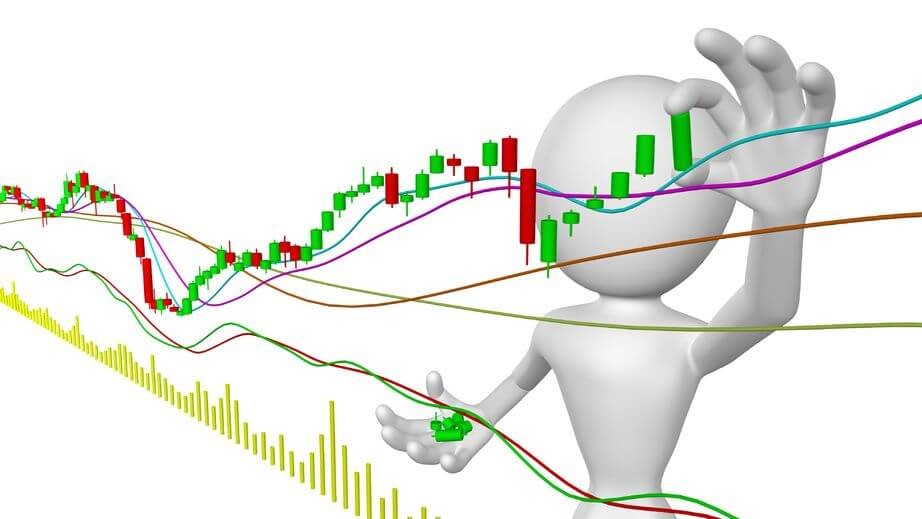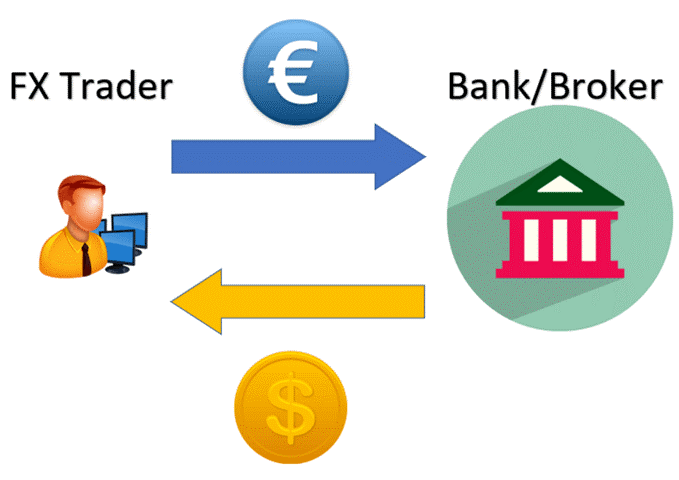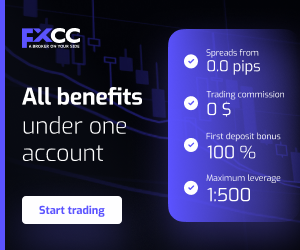Who controls the forex market
For traders in the forex market, knowledge is power. One of the fundamental aspects of this knowledge is understanding who controls the market. The forex market is not controlled by a single entity or governing body, but rather a combination of various factors, institutions, and individuals. These entities and factors exert their influence on exchange rates, impacting the profitability of traders.
It is important to acknowledge that apart from the major players in the Forex market, there are broader global economic forces that play a significant role in shaping the market. These forces include trade balances, geopolitical events, and international economic trends. To make informed decisions, traders must keep a close eye on the global economy.

Major players in the forex market
The forex market, often dubbed the "currency market," is a complex arena where various entities wield substantial influence. Understanding the key players is fundamental to comprehending the market's dynamics.
Central banks
Central banks play a pivotal role in the forex market due to their control over a nation's money supply and interest rates. Their policies can significantly impact exchange rates, making them a vital factor for traders to monitor. Central banks use tools such as open market operations, interest rate adjustments, and currency interventions to influence their respective currencies' value.
Some prominent central banks include the Federal Reserve (the U.S. central bank) and the European Central Bank (ECB). The Federal Reserve's decisions on interest rates and monetary policy, for instance, can cause ripples throughout the forex market, affecting the value of the U.S. dollar. Likewise, the ECB's actions can sway the euro's exchange rate.
Commercial banks
Commercial banks are active participants in the forex market, facilitating currency exchange for their clients and engaging in proprietary trading. They provide liquidity to the market by quoting buy and sell prices for currencies, ensuring that traders can execute their orders promptly. The sheer volume of transactions conducted by commercial banks has a profound impact on market liquidity, making them a significant player in the forex arena.
Institutional investors
Institutional investors encompass a diverse range of entities, but two key categories stand out: hedge funds and pension funds.
Hedge funds: Hedge funds are known for their speculative activities in the forex market. They employ various strategies, such as carry trades and trend-following, to generate returns. Their substantial trading volumes can exacerbate currency movements and introduce volatility.
Pension funds: Pension funds, on the other hand, are long-term investors. They often hold significant positions in various currencies as part of their portfolio diversification strategy. While their actions may not trigger short-term fluctuations, their cumulative influence over time can affect currency values.
Government policies and regulations
Government policies and regulations hold a vital role in shaping the forex market's stability and functioning. Understanding the impact of governments on currency exchange rates is essential for traders seeking to navigate this dynamic market.
Forex trading is subject to regulatory oversight in many countries, ensuring fair and transparent market operations. Regulatory bodies set guidelines for brokers, traders, and financial institutions involved in forex transactions. These regulations aim to protect traders from fraud, manipulation, and market abuse. Forex traders must choose brokers regulated by reputable authorities to ensure the safety of their investments.
Government policies can have a direct and immediate impact on exchange rates. For instance, a central bank's decision to alter interest rates can influence the attractiveness of a country's currency to foreign investors. Fiscal policies, such as taxation and government spending, can also affect a nation's economic stability, impacting currency values. Additionally, geopolitical events, trade agreements, and sanctions can lead to abrupt shifts in exchange rates.
Examining real-world cases of government interventions provides insights into the potential consequences on forex markets. For example, the Swiss National Bank's decision to remove the Swiss franc's peg to the euro in 2015 led to a dramatic and unexpected surge in the franc's value. Similarly, the Bank of Japan's intervention to weaken the yen through massive currency purchases has been a recurring strategy.
Economic indicators and market sentiment
Economic indicators and market sentiment are pivotal aspects of the forex market, providing traders with valuable insights into potential currency movements.
Economic indicators serve as barometers of a country's economic health. Key indicators like Gross Domestic Product (GDP), inflation rates, and employment figures offer a snapshot of an economy's performance. Forex traders closely monitor these indicators because they can significantly impact currency values. For example, a higher GDP growth rate or lower inflation can boost a nation's currency by attracting foreign investments. Conversely, disappointing economic data can lead to currency depreciation.
Market sentiment refers to the collective psychology and emotions of forex traders and investors. It plays a critical role in driving short-term market movements. Positive sentiment can drive demand for a currency, while negative sentiment can lead to selling pressure. Sentiment can be influenced by a variety of factors, including economic news, geopolitical events, and even social media trends. Traders must pay close attention to shifts in sentiment, as they can create rapid price fluctuations.
Traders' psychology, specifically their emotions and behavior, can impact market control. Emotions like fear and greed can lead to impulsive decisions, causing price spikes or crashes. Recognizing and managing these psychological factors is crucial for traders. Strategies like risk management and discipline help traders mitigate the influence of emotions on their trading decisions.

Technological advancements
Technology has transformed forex trading from a predominantly manual process to a highly automated and efficient endeavour. The introduction of electronic trading platforms, accessible to traders worldwide, has democratized the market and increased transparency. It allows traders to execute orders, analyze charts, and access real-time market data with ease. Moreover, technology has significantly reduced trading costs and timeframes, making it more accessible to retail traders.
Algorithmic trading, driven by sophisticated computer algorithms, has become a dominant force in the forex market. These algorithms can analyze vast amounts of data and execute trades at speeds beyond human capabilities. High-frequency trading (HFT), a subset of algorithmic trading, involves ultra-fast trades executed in milliseconds. Both strategies are designed to exploit market inefficiencies, leading to increased liquidity and efficiency in the forex market.
The prevalence of algorithmic and HFT strategies has introduced a new dimension to market dynamics. These automated trading systems can react to news and events instantaneously, leading to rapid price movements. While technology enhances market efficiency and liquidity, it can also exacerbate volatility during high-impact events. Traders need to adapt to this technologically-driven landscape by employing risk management strategies and staying vigilant to algorithmic-driven shifts.
Risk management in a technological environment
As technology continues to advance, the forex market's speed and complexity have increased, presenting both opportunities and challenges for traders. In this environment, the importance of incorporating robust risk management strategies cannot be overstated.
Volatility and risk exposure: The rise of algorithmic trading and high-frequency trading (HFT) has introduced a new level of volatility to the forex market. Traders now face the possibility of sudden and sharp price movements that can catch them off guard. To navigate this volatility effectively, traders must assess their risk exposure carefully. This involves evaluating the potential impact of adverse price swings on their positions and using risk mitigation tools like stop-loss orders to limit potential losses.
Leveraging technology for risk mitigation: Paradoxically, technology, which has contributed to increased market complexity, also offers solutions for risk mitigation. Traders can harness technology by utilizing risk management software and automated trading systems equipped with risk control mechanisms. These tools can help traders set predefined risk parameters, automate risk-adjusted position sizing, and execute trades with precision. Furthermore, the availability of real-time data empowers traders to make informed decisions swiftly, enabling them to react to changing market conditions and manage risks effectively.
The future of technology in forex trading
The evolution of technology in forex trading is an ongoing process.
Artificial intelligence and machine learning: AI and machine learning are expected to play a more significant role in forex trading. These technologies can analyze vast datasets, identify patterns, and make predictions, potentially offering traders valuable insights.
Regulatory considerations: As technology continues to shape the market, regulatory bodies will likely adapt to ensure fair and transparent trading. Traders should stay informed about evolving regulations that may affect their strategies.
Conclusion
It is crucial to recognize that the forex market is a complex and ever-evolving ecosystem. No single entity or factor exerts complete control. Instead, a multitude of factors, including economic indicators, market sentiment, and technological advancements, collectively shape market dynamics. The interplay of these elements creates a dynamic and sometimes unpredictable environment.
As traders, it is paramount to stay informed about the factors influencing the forex market and adapt to changing conditions. Continual education, prudent risk management, and the ability to adjust trading strategies are essential for success in this environment. By remaining vigilant and flexible, traders can navigate the forex market w


